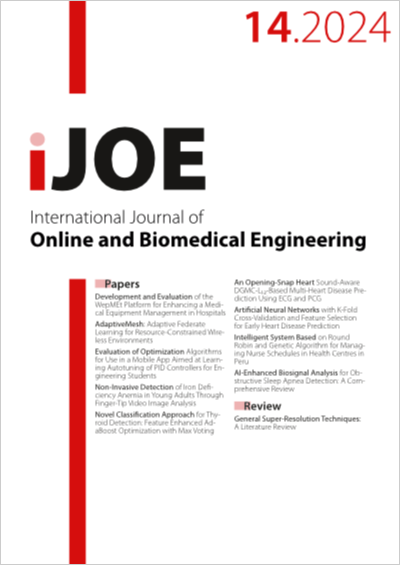Intelligent System Based on Round Robin and Genetic Algorithm for Managing Nurse Schedules in Health Centres in Peru
DOI:
https://doi.org/10.3991/ijoe.v20i14.50571Keywords:
schedule management, nurses, algorithms, artificial intelligence, genetic algorithm, round robin algorithmAbstract
The inefficient assignment of nurse shifts poses a significant problem for medical centres due to stringent constraints and preferences, such as staffing requirements and hospital needs. In this study, we address these challenges by applying an improved hybrid algorithm that combines the Round Robin (RR) and Genetic Algorithms (GA) to develop an intelligent system for managing nurse schedules in hospitals in Peru. The development of the system consists of seven phases: dataset definition, variable definition, constraint definition, applying RR algorithm, applying GA, evaluation of algorithms, and intelligent system architecture. Nurse schedule records from a medical centre in Peru were used as the dataset. A total of 53 individuals, including head nurses and nurses, participated in the proposed system. The use of the proposed system resulted in a 99.71% reduction in “execution time” and a 30.08% improvement in “fairness in shift distribution” for nurses compared to previous methods. The key findings demonstrate significant improvements in both efficiency and fairness, highlighting the potential for future applications in health centres. The unique contributions of this research lie in the enhanced hybrid algorithm and its successful implementation in a real-world medical centre in Peru.
Downloads
Published
How to Cite
Issue
Section
License
Copyright (c) 2024 Katerin Villalobos, Dana Vallejos, Jose Luis Castillo Sequera , Lenis Wong

This work is licensed under a Creative Commons Attribution 4.0 International License.



